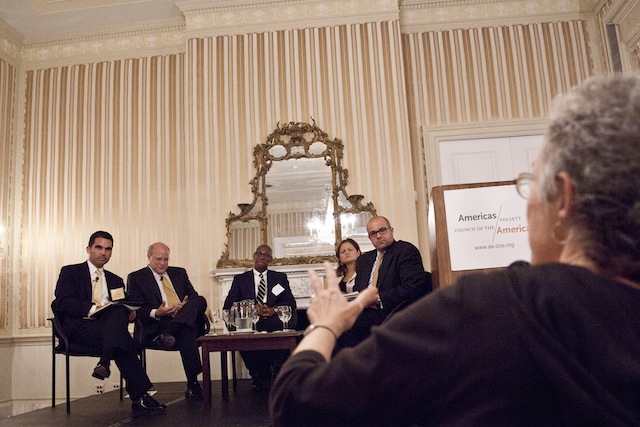
Dispatches, United States
Restrictive Immigration Laws Undermine Job Growth, Study Says
October 21, 2011 By Roque Planas
NEW YORK — Restrictive immigration policies undermine job creation and may adversely affect the business environment in other ways, according to a study released Thursday.
The Americas Society, a New York-based policy group, said it found that local laws seeking to crack down on illegal immigration fostered an environment unfriendly to job creation, when compared to so-called “sanctuary cities,” which avoid using local resources to enforce federal immigration law.
Jason Marczak of the Americas Society said he hoped the research would help advance the national immigration debate, which is “often filled with passionate debate and anecdotal claims.”
The study measured the number of businesses, jobs and employees across 53 cities that passed immigration laws or ordinances from 2006 to 2009. The researchers defined four types of laws or ordinances as “restrictive policies” — those requiring verification of employees’ immigration status, those requiring landlords to verify the status of tenants, 287(g) agreements giving localities the power to enforce immigration law and English-only laws.
The researchers classified 13 cities as sanctuary cities and 40 as restrictive. New York City, considered a classic example of a sanctuary city, was excluded because its immigration policies date back farther than the 2006 cutoff year. Likewise, the most controversial immigration laws passed in recent years — Arizona’s SB 1070, Georgia’s HB 87 and Alabama’s HB 56 — were not considered.
The results indicated that restrictive local immigration policies led to a contraction in the number of jobs in a given city, but did not have a significant effect on the number of businesses.
Policies restricting employment had the greatest effect, with such cities registering 0.26 times fewer employees than cities with nonrestrictive policies. In other words, the paper’s statistical model indicates that a hypothetical city of 10,000 with laws restricting employment for undocumented immigrants would have 2,600 fewer jobs than a similar city without such restrictions.
“I don’t think the proponents of these laws aim to create job loss in their cities, but that’s what we’re seeing,” Marczak said.
Though the authors did not find restrictive immigration policies to affect the number of businesses in a given area, they noted that the reduction of consumption and productivity caused by job loss may lead to business closures over the long term.
“Employment ordinances are then going to have a snowball effect,” said Jeronimo Cortina, a professor at the University of Houston and a co-author of the study.
Cortina cited ordinances prohibiting undocumented immigrants from renting apartments as one example of policies that can have wider economic effects than intended. Cortina said restricting undocumented immigrants’ ability to rent property led to more vacancies, which in turn eats into city tax revenue, affecting public services such as schools and hospitals.
In addition to job loss, restrictive immigration policies bring other unintended consequences, according to the panel of speakers that met to present the study at the New York office of the Americas Society Thursday evening.
Roderick Royal, the president of the Birmingham City Council and an opponent of Alabama’s strict state immigration law, said his state’s crackdown on immigration would hurt the construction industry during a period of rebuilding following April’s tornado and storm damage.
“This is also about skilled jobs — it’s about roofers, it’s about skilled bricklayers,” Royal said, noting that the state immigration law had driven workers out of the construction industry. “This necessarily means a delay,” Royal added.
Royal also said he feared Alabama’s immigration law would hurt the state’s tourist industry, if opponents decided to boycott the state as they did Arizona.
Tourism and international business played a major role in defeating an attempt to make English the official language of city government in Nashville two years ago, according to Ronnie Steine, a member-at-large of the Nashville City Council.
The famed country music capital receives some 350,000 foreign visitors annually and international businesses including Nissan, Bridgestone Americas and Volkswagon are major employers in the area, Steine said.
The Tennessee politician said he opposed “the notion that we were going to take down the ‘welcome to Nashville’ sign and put up the ‘stay away’ sign.”
Stein added that neighboring states’ tough immigration laws made Tennessee look more welcoming to immigrants and other foreigners by contrast. “Quite honestly, it’s a public relations boon for us,” he said.
< Previous Article
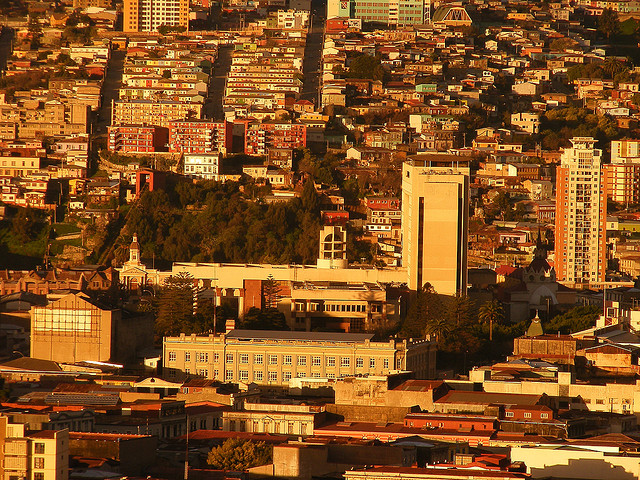
October 21, 2011 > Staff
Chile: Protestors Interrupt Congress To Demand Educational Reform
Next Article >

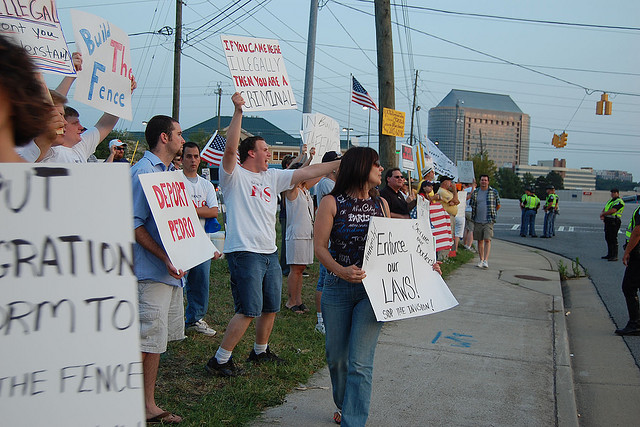
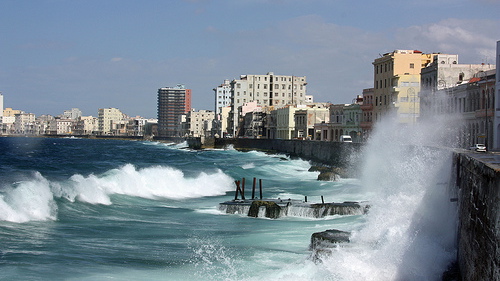

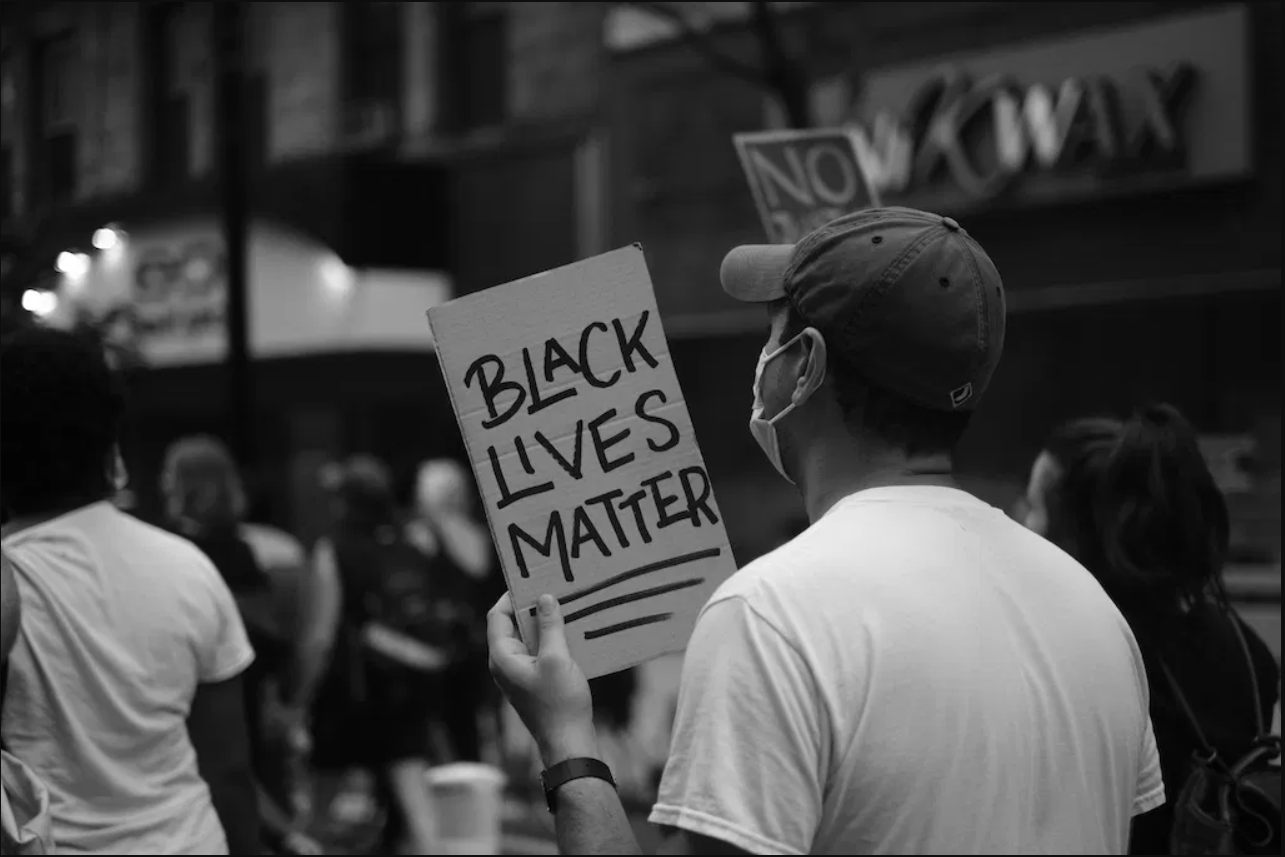
2 Comments
“Restrictive Child labor and Slavery Laws Undermine Job Growth”… Hiring unauthorized workers is illegal. Unlawful business practices should not be rewarded with profit. They should be punished under the law.
[…] The Obama administration’s approach to immigration enforcement has also escalated a humanitarian crisis, despite his plenary authority and the opportunity to restore the law without needing cooperation by Congress. While the administration did sue the State of Arizona to challenge its attempt to institutionalize profiling, and recently decided not to enforce immigration laws against students who have lived in the US for most of their lives, it has overseen a historic escalation of immigration enforcement, with deportations of undocumented immigrants increasing to record levels despite illegally removing even US citizens and further threatening the economy recovery. […]
Comments are closed.